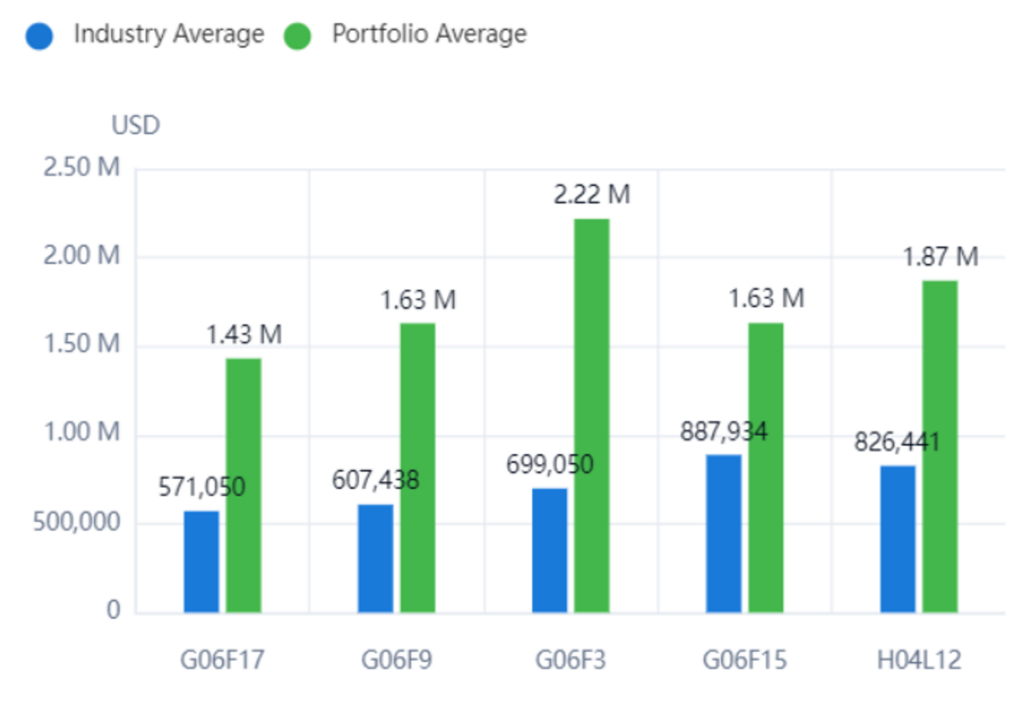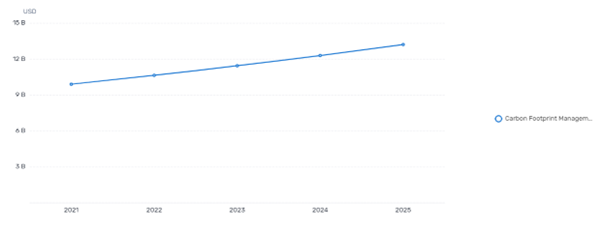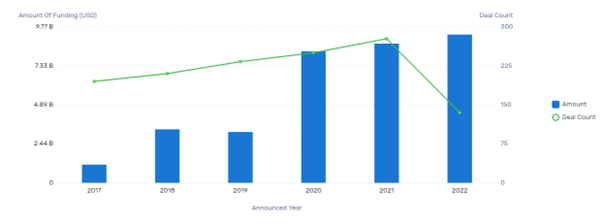
Can Microsoft’s new initiative help solve climate change? In this article, we’ll explore MCRI and analyze the carbon tech trends shaping our future.
This article was curated using our AI-powered Discovery Product, which connects billions of patent and non-patent data points. Get the technology insights and competitive intel you need.
The world is heating up. In June of this year, a staggering 7.68% of the globe’s land and ocean surfaces reported record high temperatures. This represents the highest June percentage since records started in 1951, which is part of an alarming climate trend.
Higher global temperatures are causing more frequent disasters including wildfires, hurricanes, drought, and food insecurity. For example, in 2021 areas across the U.S east coast were hit by the disastrous effects of Hurricane Ida, with the storm’s damages costing $65 billion. This hurricane represents the fifth most expensive weather disaster in the history of the world.
In this article, we’ll explore Microsoft’s Climate Research Initiative (MCRI) and what the company is doing to offset the negative externalities associated with climate change.
Microsoft Climate Research Initiative: An Overview
The newly founded project aims to combine Microsoft’s profound research and computing capabilities with a community of multidisciplinary research experts to collaboratively combat climate issues. Its ultimate goal is to deliver transformative innovation within the climate change research space.
Results of the initiative are expected to be made freely available to the public, with the hope that the MCRI’s creation inspires broader climate change related research and development.
Microsoft’s advanced technological capabilities coupled with its breadth and depth of data make the company a powerful asset for climate-based research. Access to these capabilities accelerates research and improves quality assurance.
The chart below illustrates Microsoft’s superior wealth in patented technology, using the most prevalent IPC codes, compared to the estimated industry average. Microsoft’s IP nearly doubles the industry average value in most aspects of its technology and data portfolio. As such, Microsoft’s existing infrastructure could be the boost climate experts need to find actionable solutions related to climate change innovations.

Carbon Tech Topic Analysis
In January 2020 Microsoft announced its ambitious goal of becoming carbon negative by 2030 and eventually removing all of the company’s historical carbon emissions by 2050. Therefore, it comes as no surprise that phase one of the MCRI’s research plan is to focus on overcoming constraints related to decarbonization, reducing uncertainties in carbon accounting, and assessing climate risks in more detail.
Carbon, as a tech topic, is gaining traction. As the graph below illustrates, the Carbon footprint management market is expected to reach $13.2 billion by 2025, making it a ripe area for innovation.

Speaking of new innovations, carbon-related ventures are on the rise, with venture capital (VC) investments jumping from $3.18 billion in 2019 to $9.28 billion in 2022. This is impressive, especially considering we’re only halfway through the year.

Conclusion:
The MCRI is another exciting new project from Microsoft, which continues to lead by example when it comes to climate action. Although the MCRI’s impact is still unknown as it relates to climate change, its creation is likely to inspire other corporate leaders to follow suit.
If you’re interested in keeping track of new developments in the climate change space, try our Discovery platform for free. It provides you with instant access to billions of global data points including company news, M&A activity, VC investments, tech trends, and more!
Author Bio

William works as a Product Intern at PatSnap, with a focus on the Discovery Platform. He is pursuing a bachelor’s degree in Business Management at the University of Brighton. In his spare time, William enjoys sports and reading novels.
